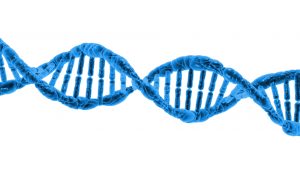As of recently there’s a very interesting bit of news which has popped up on a few occasions. Like so many articles that catch my eye, this subject matter concerns personal privacy in the context of interactions with technology; however, this is a somewhat different type of technology than usual. Of concern as of today is not data as in your name and location, but instead your genetic data.
 A recent article starts with the striking statement that “A new study argues that more than half of Americans could be identified by name if all you had to start with was a sample of their DNA and a few basic facts” (Los Angeles Times). Data aggregation by services that offer to provide consumers a glimpse into their genealogy has compiled great databases of DNA which are far bigger than ever before. Even so, this potential for deanonymization and attachment of identities to DNA isn’t new; as far back was 2013 were we shown that it was “possible to unmask the identities of people listed in anonymous genetic databases using only an Internet connection” (Wired).
A recent article starts with the striking statement that “A new study argues that more than half of Americans could be identified by name if all you had to start with was a sample of their DNA and a few basic facts” (Los Angeles Times). Data aggregation by services that offer to provide consumers a glimpse into their genealogy has compiled great databases of DNA which are far bigger than ever before. Even so, this potential for deanonymization and attachment of identities to DNA isn’t new; as far back was 2013 were we shown that it was “possible to unmask the identities of people listed in anonymous genetic databases using only an Internet connection” (Wired).
The implications of this are pretty substantial. The implication which most people are probably aware of relates to the ability of Police departments to identify suspects using DNA, as occurred not too long ago with the Golden State Killer. While many people might see this as great, it’s not the only potential effect of a deanonymized DNA database. Imagine that, in an unfortunate future, you send off some DNA to find out more about your family history, and receive in the mail a notice from your insurance that you’re genetically predisposed to something and will have to pay more. While there’s no doubt that these services can be very useful (the articles mention instances of close family members being found from across the globe), it seems to me to be a very interesting and new type of privacy to be mindful of.
